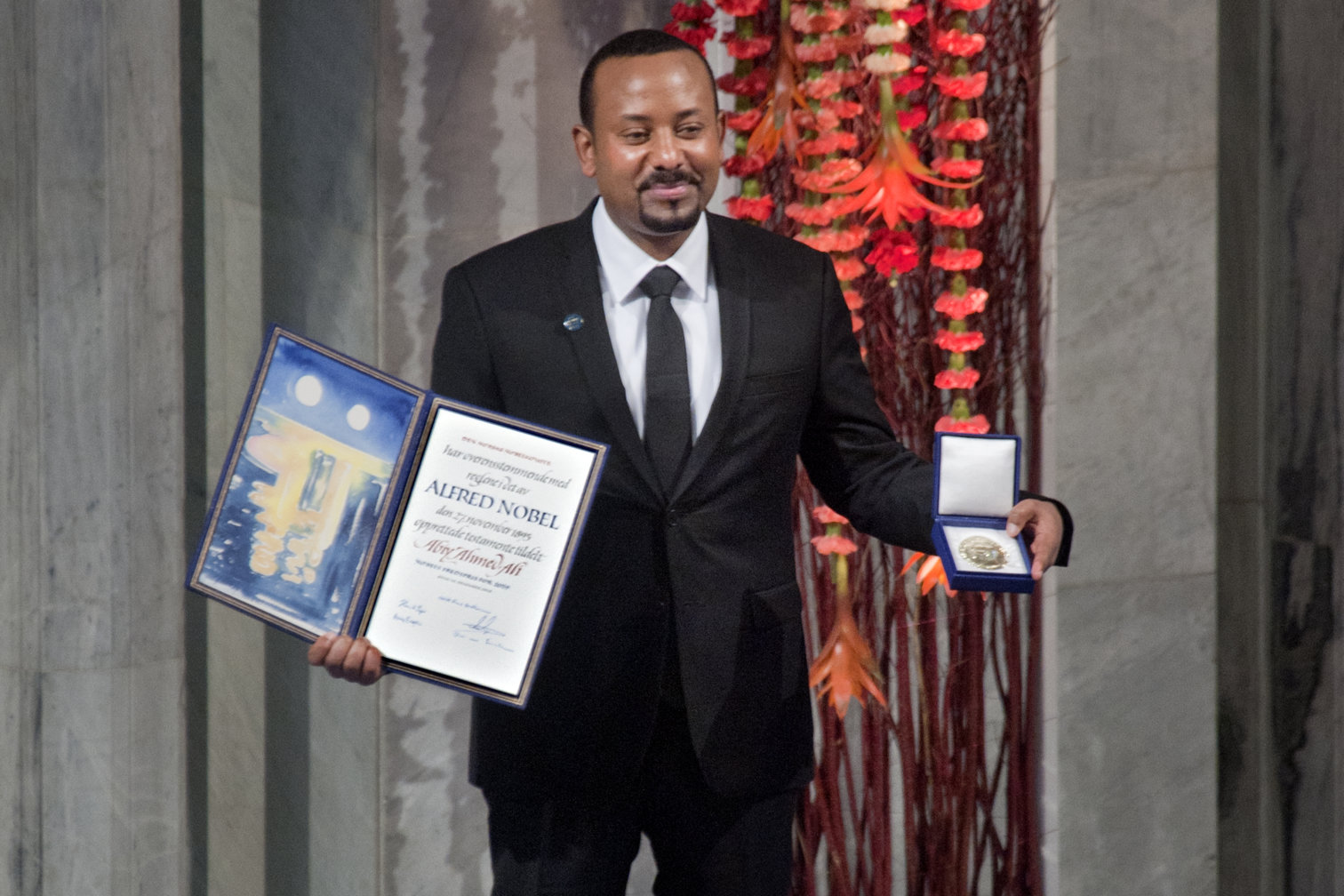The National Elections Board of Ethiopia (NEBE) is expected to announce the results of the first set of voting on Friday, 9th July. Prime Minister Ahmed Abiy’s Prosperity Party (PP) has so far won almost all the seats announce so far, with the opposition complaining of massive irregularities.
The June 21st election was not conducted in 110 out of the country’s 547 constituencies due to security concerns. These included the Tigray region which has seen months of fighting between the Tigray People’s Liberation Front (TPLF) and government forces backed up by Eritrean troops.
NEBE is expected to hold elections in September in these areas. Ahmed needs to secure 247 seats to have a majority in Ethiopia’s parliament.
The June poll marks the first election since Abiy took power in 2018, following years of anti-government protests which forced his predecessor, Hailemariam Desalegn, to step down.
Abiy instituted what many have described as a “political shakeup” when he assumed office. In his first 100 days at the helm, he lifted the state of emergency, released thousands of political prisoners (including journalists and bloggers from the Zone9 collective) and unbanned outlawed opposition groups.
These progressive acts which others were received with so much optimism both at home and abroad. Just one year in office, he won the Nobel Peace Prize in 2019 for his reform agenda and for achieving peace with Eritrea, bringing an end to a long-standing border conflict.
Abiy’s honeymoon would however soon come to an end when he decided to disband the Ethiopian People’s Revolutionary Democratic Front (EPRDF) Coalition in favour of a singular party – PP. TPLF, which dominated the EPRDF coalition for almost 30 years before Abiy came to power, declined to merge with the other three ethnically based parties into the PP.
It accused the prime minister of attempting to centralise power at the expense of Ethiopia’s ethnically-based regions, an allegation Abiy refutes. The proponents of the merger argued that EPRDF’s dissolution would promote national unity and bolster democracy. This was coming at a time when the country was expecting to conduct the first elections under a new prime minister in August 2020. These elections would eventually be postponed to June 2021 because of the Covid-19 pandemic.
However, in a defiant move, the TPLF went ahead and conducted elections in the Tigray region in Northern Ethiopia and won the polls with a landslide. An action that set them on a collision path with the Addis based Federal government.
After months of tension, in November 2020, Abiy ordered government forces into the Tigray region, accusing the TPLF of attacking a federal military base in the country’s north. Ethiopia’s troops were bolstered by reinforcements from the Eritrean military as they sought to drive TPLF which was now considered a rebel movement out of the region.
The conflict resulted in untold suffering for civilians as humanitarian services were cut off during the operations. Thousands fled the region to neighbouring Sudan. Soldiers from the federal army, and the reinforcement from Abiy’s new ally Eritrea, were accused by international media organizations of committing war crimes during the conflict.
The Ethiopian Government-funded, Ethiopian Human Rights Commission (EHRC), confirmed that grave violations that could amount to crimes against humanity or war crimes were committed in the city of Axum in November. Over 100 civilians were killed according to a report by the commission.
“Information collected during this preliminary investigation confirms that during the two days of November 28 and November 29, grave violations of human rights were committed and that in Axum, over one hundred residents… were killed by Eritrean soldiers,” the commission said.
The conflict in the Tigray region aside, Abiy launched an offensive against opposition politicians and media houses deemed to be leaning towards the opposition. The parties complained that a government crackdown against their officials disrupted their plans to prepare for the polls. Still, in some regions like Oromia, opposition parties boycotted the polls citing government intimidation.
There have been calls made to the Nobel Peace Prize Committee to have Abiy’s award withdrawn. In some quarters, he has been described as a “belligerent warmaker” undeserving of the world’s most famous prize.
Henrik Urdal, director of the Peace Research Institute Oslo, is reported to have told Washington Post columnist Max Bearak that “the Abiy award was probably the riskiest of their (the noble prize committee) process awards…”
In a Tuesday afternoon (6th July 2021) phone call, US Secretary of State Antony Blinken asked the prime minister to ensure that Eritrean forces completely withdraw from the country and a guarantee of access to the Tigray region by humanitarian agencies.
I spoke with Prime Minister @AbiyAhmedAli today. Eritrean forces need to withdraw fully from the country, and we must ensure full, safe, and unhindered humanitarian access to all populations in need.
— Secretary Antony Blinken (@SecBlinken) July 6, 2021
While Abiy and his Prosperity Party are expected to win the final vote, his administration has not delivered the prosperity promised to the over 112 million Ethiopians in 2018. On the contrary, he has entrenched ethnic balkanization in the country, the deterioration of basic rights and an increase in political conflicts across the country, and beyond.



